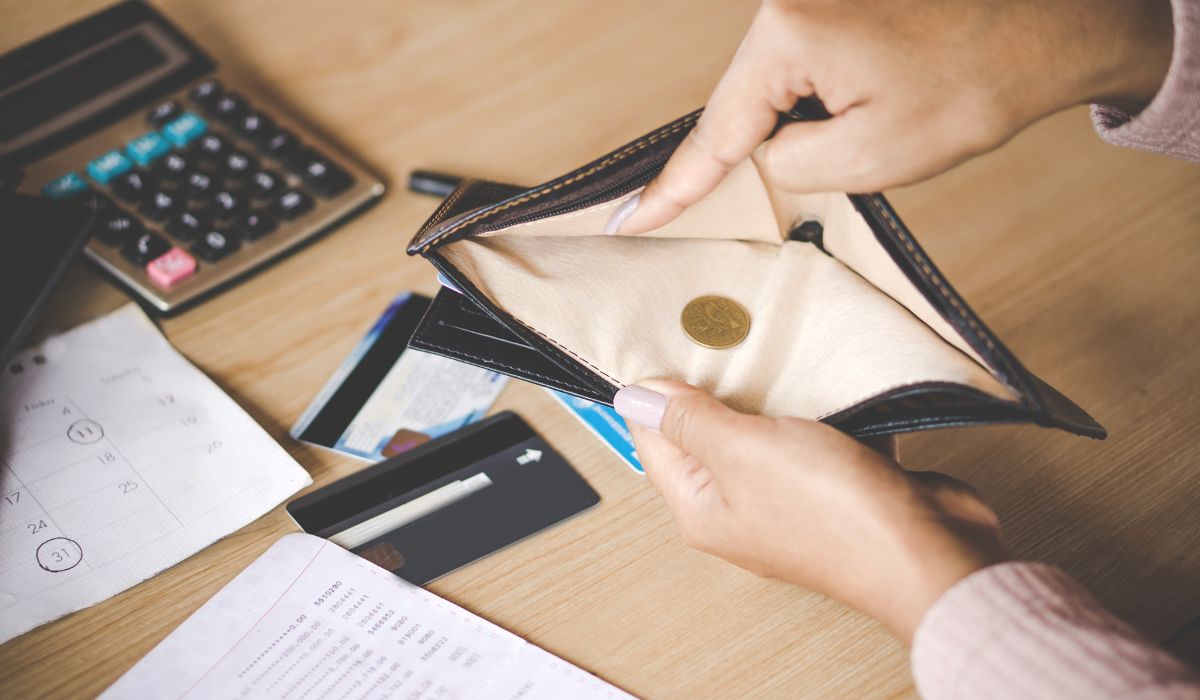Managing finances with poor credit is difficult. A personal loan may seem impossible if you have bad credit. However, a low credit score doesn’t rule out getting a loan. Personal loans may be obtained even with bad credit.
This article will help you achieve financial stability by exploring these choices. From knowing your credit score to recognising other financing alternatives, we will discuss how to get a personal loan even with bad credit.
What is a Bad Credit Score?

Creditworthiness in Singapore is mostly evaluated by a 4-digit Credit Bureau Singapore (CBS) score. This score, which runs from 1,000 to 2,000, shows your payment history and predicts debt default.
CBS credit history reports cost SGD 8 with prevailing GST. This report shows your credit behaviour, which affects your score. A credit score between 1,000 and 1,723 is considered “HH” risky.
Several things affect credit scores. These include your credit usage, recent credit applications (including credit cards), credit score inquiries, and late payments. The longer you’ve had good credit, the higher your score.
Due to the complex loan approval process, getting a personal loan with bad credit is difficult. Hope remains. Credit repair and minor loans are possible.
Below is a reference of credit score according to CBS.
| Score Range | Risk Grade | Probability of Default | |
|---|---|---|---|
| Min | Max | ||
| 1911 – 2000 | AA | 0.00% | 0.27% |
| 1844 – 1910 | BB | 0.27% | 0.67% |
| 1825 – 1843 | CC | 0.67% | 0.88% |
| 1813 – 1824 | DD | 0.88% | 1.03% |
| 1782 – 1812 | EE | 1.03% | 1.58% |
| 1755 – 1781 | FF | 1.58% | 2.28% |
| 1724 – 1754 | GG | 2.28% | 3.46% |
| 1000 – 1723 | HH | 3.46% | 100.00% |
Source: Credit Bureau Singapore
How is Credit Rating Determined?
Your credit score is a numerical representation of your creditworthiness based on many financial habits. CBS calculates this score in Singapore. These factors may lower your score:
- Credit Utilisation Pattern. Credit scores depend on spending behaviours. Banks may reduce your credit score if they discover abrupt or drastic changes in your credit utilisation, which may indicate financial trouble.
- Recent Account Activity. Multiple loan or credit applications within a short period can be perceived negatively by CBS. Regular applications may suggest that you’re over-extending yourself financially, which could lead to difficulty in managing repayments and hence a lower credit score.
- Account Delinquency. Payment history matters. The CBS verifies your timely credit facility payments. Personal loan and car loan defaults might lower your credit score.
- Credit Account History. Credit history duration and quality are assessed. Long-term credit management and timely payments might boost your score. However, past defaults or late payments increase your chance of future defaults and reduce your score.
- Credit Mix. Credit scores also depend on account diversification. A healthy combination of credit cards, car loans, and personal loans shows you can appropriately manage debt. However, excessive debt or bad account management can reduce your score.
These elements can help you understand how actions affect your credit score. You may improve your credit score by controlling these areas.
How to Improve Credit Ratings in Singapore?
A low credit score takes months or years to improve. You may rebuild your credit with strategic preparation and focused implementation. Three proactive strategies for low credit scores:
Credit Counselling. Contact Credit Counselling Singapore, a non-profit that helps people manage debt. They offer financial guidance, identify the causes of your debt, and help set up loan negotiation sessions with banks. This intervention can guide you out of debt and improve your credit score.
Debt Restructuring. If you have debt, as many people with bad credit do, try restructuring it. Debt consolidation or balance transfer may be needed. Both methods try to combine high-interest debt like credit card bills into lower-interest loans. This may help you pay off debt faster.
Timely Repayments. Following your payback plan is one of the best strategies to boost your credit score. Paying debts promptly and in full. Doing so clears your debt and shows lenders your trustworthiness and financial discipline. Your credit score will gradually improve.
These tactics require effort and discipline, but they can improve financial health and credit scores. Each step counts in the marathon of raising your credit score.
Learn more about how you can improve your credit scores.
How to Apply for a Personal Loan in Singapore if You Have a Bad or Poor Credit Score?
A personal loan with negative credit is conceivable. Regardless of credit score, applying is the same. However, navigating this process with a poor credit score requires some strategic steps:
- Ensure Eligibility. Before applying, check your eligibility. While these restrictions differ by bank, most Singaporean lenders limit their services to anyone between 20 and 65 years old. Banks also ask for S$20,000 for residents and S$40,000 for foreigners as proof of annual income.
- Compile a List of Providers. Lenders have different income minimums. Thus, it’s wise to investigate and list suppliers in your income bracket. Guaranteed interest rates can help prevent credit score-related rate rises. This preliminary research will help you limit your alternatives and choose the best ones.
- Apply Sequentially, Not Simultaneously. Application results vary per provider. Bad credit or poor income may result in higher interest rates. However, don’t apply for loans from several lenders. Desperation can make the credit agency label you “credit-hungry,” which can lower your score. Instead, apply with one supplier, evaluate the result, and then move on if necessary.
Each application is a chance to prove your creditworthiness. Understanding the process, being aware of restrictions, and applying strategically will help you get a personal loan with terrible credit.
What if Your Personal Loan Got Rejected?

Rejection of a personal loan owing to bad credit might be disappointing. Rejection isn’t the end. There are still options:
Apply for Smaller Personal Loans
If you have bad credit in Singapore, seek smaller loans. Even with weak credit, this method may improve your chances of acceptance.
Smaller loans represent less financial risk to lenders. Even with bad credit, lenders may grant a lesser loan.
Smaller loans feature smaller monthly repayments, making them simpler to budget and pay on time. If you have terrible credit, consistent on-time payments might help repair it.
Applying for and repaying smaller loans might boost your credit score over time. On-time payments improve credit ratings.
Singapore banks, credit unions, and licensed moneylenders provide modest personal loans. Each provides different qualifying requirements and interest rates, giving you alternatives.
You may also explore microloans. These tiny, short-term loans are simpler to get than personal loans. They’re fantastic for fast cash.
Explore Non-Bank Financial Institutions
If you have a bad credit score, non-bank financial organisations may be an alternative. These organisations, like as Hong Leong Finance and Singapura Finance, are registered with the Monetary Authority of Singapore (MAS) and must follow certain rules to safeguard borrowers.
Non-bank financial firms have looser qualifying standards than banks. They may prioritise your present loan repayment capabilities above your credit history.
Learn how to get a personal loan without income proof in Singapore.
These banks provide personal, commercial, and secured loans. This variation gives you additional lending possibilities to meet your demands.
MAS-registered non-bank financial firms are regulated. This provides openness, legality, and borrower protection.
Non-bank financial organisations frequently provide more personalised customer service. They may analyse your finances and recommend a loan that meets your demands.
Moreover, these lenders provide competitive interest rates.
Before signing any loan arrangement, it’s important to read the terms and conditions. Understand interest rates, fees, and payback conditions. Avoid fines and credit score harm by being sure you can make payments on time.
Consider Licensed Moneylenders
One alternative for poor credit is a licensed moneylender. Licensed moneylenders have more liberal loan approval standards than banks.
Legal and controlled moneylenders may lend you money. Singapore’s Ministry of Law regulates them. These lenders regularly lend to people with weak credit ratings because they evaluate other aspects.
Licensed moneylenders prioritise your capacity to repay the loan above your credit history. Your loan application is assessed based on income, employment, and financial responsibilities.
They approve loans quicker than banks, which might take weeks. This might help if you need money fast.
Moreover, they follow rigorous laws to safeguard borrowers. Before signing the loan agreement, interest rates, fees, and payback conditions must be clearly disclosed.
Licensed moneylenders in Singapore may be a good choice, but beware of the risks. Borrow sensibly and only if you can return the loan on time. Doing so prevents debt traps and credit score damage.
Learn the differences between Licensed Moneylenders and Loan sharks.
Rejection can be hard, but it’s an opportunity to rethink your finances, improve your credit score, and look for other lenders. Remember that every step towards financial responsibility gets you closer to a loan.
Is it Possible to Get a Debt Consolidation Loan with Bad Credit in Singapore?
Bad credit debt consolidation loans in Singapore are attainable but can be challenging. A debt consolidation loan merges many obligations into one, generally with better payback conditions like a reduced interest rate or monthly payment. It may enhance debt management and financial status over time.
Nationality, age, annual income, and balance-to-income (BTI) ratio affect DCP eligibility. The BTI ratio, which compares your total unsecured loans to your typical monthly income, is vital to loan approval. High BTI ratios may dissuade lenders due to high debt loads.
DCPs are for Singaporeans with unsecured debt greater than 12 times their monthly salary. If so, a DCP may help you manage and reduce your debt.
Due to the danger of default, a negative credit score may make it harder to get a DCP. Financial institutions may reject your application or provide a higher lending rate. Before applying for a consolidation loan, enhance your credit score. As a last resort, non-bank financial firms may have fewer criteria.
Learn also how you can get a personal loan for emergencies.
The Bottom Line

In conclusion, getting a personal loan with a bad credit score is hard but not impossible. Even with bad credit, there are ways to get financing.
First, learn how your credit affects loan applications. Responsible debt management, timely payments, and modest credit usage may boost your credit score.
If your credit score is poor, licensed moneylenders and non-bank financial companies may approve your loan. Due to their greater risk, these lenders may have more flexible lending conditions but higher interest rates.
Smaller personal loans and co-signers might improve your loan approval odds. A co-signer with solid credit helps reassure the lender, and a lesser loan amount decreases risk.
Debt consolidation loans might help those with several debts. A negative credit loan is feasible. Secured, co-signed, and credit counselling loans are options.
Remember that smart money management, honest contact with lenders, and competent financial counsel are the keys to debt management. Bad credit is a setback but not the end of your financial journey. You can overcome this obstacle and achieve financial stability with the correct mentality.
Need a personal loan? Find the best personal loan offers with our personal loan-matching platform here.
















